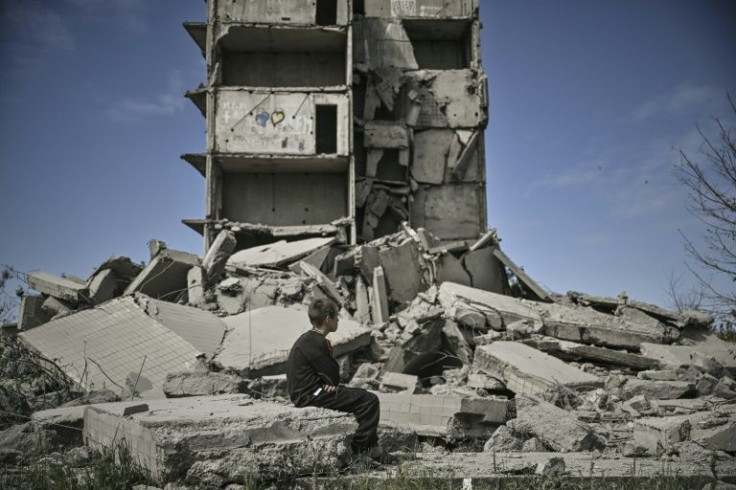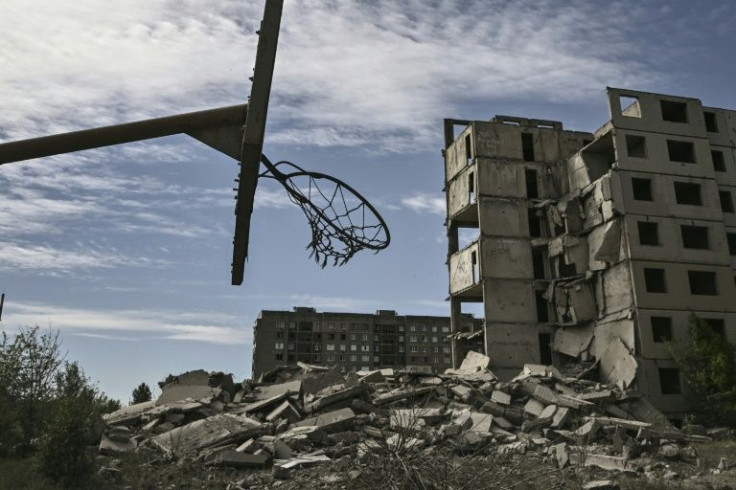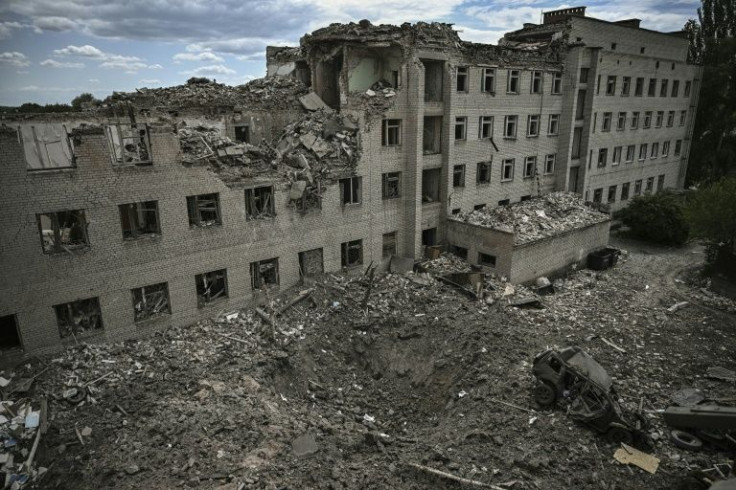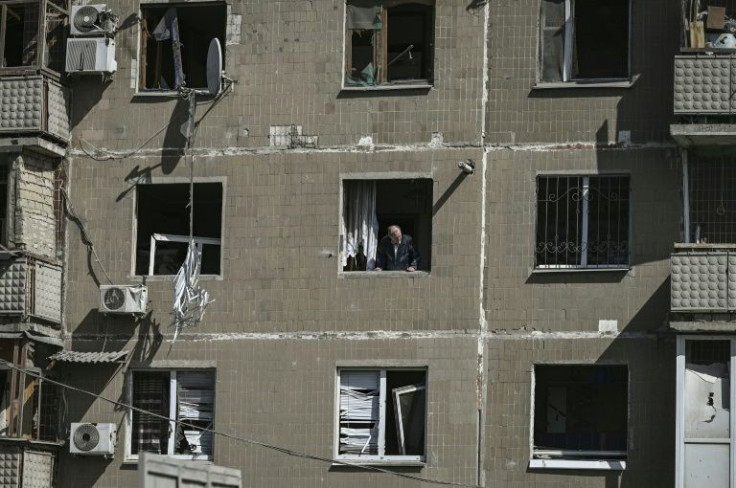Ukraine's Children Of War Roam Rubble Of Eastern Front
The darting eyes of the sullen boy sitting all alone on a slab of a destroyed Ukrainian apartment tower moved to the sound of shellfire.
An overnight attack had levelled an abandoned building facing the Russians approaching through the nearby woods.
Yevgen and his mother had already escaped the ruins of one village smoking on the horizon of Ukraine's increasingly besieged war zone capital Kramatorsk.
The 13-year-old was now contemplating having to run again in the fourth month of Russia's invasion of its pro-Western neighbour.
"That was a 22," the serious-looking boy from the ruined hamlet of Galyna volunteered from the edge of his severed block of concrete.

The booms of what could have been 122-calibre shells rolled in from the environs of one of the biggest battles of the eastern front.
Yevgen kicked a few boulders and wandered through the rubble that layered a yard once filled with children from families operating the surrounding factories and farms.
"I am not scared," he declared with a resolute shake of the head.
"I got used to the shelling in Galyna."

That Yevgen appeared to distinguish the calibre of exploding shells -- adopting the shorthand used by Russian and Ukrainian soldiers -- worried his mother to no end.
Lyubov Zakharova had spent much of the war trying to keep Yevgen off the streets.
They ended up sheltering for a week in a Galyna school basement from a frightening battle between Russian tanks and Ukrainian forces dug in the surrounding hills.
Zakharova then risked it and made a mad 20-kilometre (12-mile) dash with Yevgen and his two little sisters for the relative safety of Kramatorsk.

"I stay up all night worrying about them," the 33-year-old single mother said from the garden of an abandoned cottage she found near the now-destroyed Kramatorsk tower.
"My two-year-old has started losing her hair from the stress."
Yevgen stood with his hands folded behind his mother's skirt and stared at his shoes.
But his head would jerk sharply at the rumbles coming from the front.
"You barely want to allow the children to go out and play," the mother said.
"The kids keep asking to go out and I never want to let them. I will probably have to move us again."

The battle at Galyna allowed the Russians to edge a little closer to Kramatorsk -- a rival seat of power for the Donbas war zone to one Kremlin-backed fighters set up in Donetsk.
The largely deserted city is locally famous for the particularly bleak tone of the air raid sirens blaring at seemingly random hours of both day and night.
Its administration buildings and factories have mostly been either bombed or closed.
It has had no gas for nearly a week and is starting to lose power.
This made Galina Mukhina all the more incredulous when her recently married son -- safely ensconced in Poland -- decided to bring his young family back to Kramatorsk.
"I am scared for their little children," Mukhina said while sweeping out shards of glass and plaster that went flying across her apartment in the overnight attack next door.
"I have been telling them it is not safe. Maybe they will listen now."
That Yevgen and his mother were thinking of fleeing -- while Mukhina's son was planning to return to -- the same devastated city highlights one of the great contradictions of the war.
Some return because they have run out of savings and others because they feel the longing of home.
But retired police investigator Oleksandr Rytov said he does not expect his own adult children to ever come back from their newly found refuge in Germany.
"We are probably witnessing the start of a new emigration wave among the young," the 55-year-old said while clearing out his own shelled-out apartment in the neighbouring city of Bakhmut.
"This is a war. No one knows what will happen in the next 10 minutes. It is impossible to predict a thing."
Yet Yevgen's young mind seemed firmly set.
The 13-year-old kept staring at the destroyed building and then shooting furtive glances at the battles raging across the horizon.
He brooded for a few minutes and then spoke in a sudden burst.
"(Russian President Vladimir) Putin did this to us. This is the Russian world he promised us," he said with a nod toward the levelled tower.
"I will hate the Russians for the rest of my life," the boy angrily whispered. "At least the Americans support us."
© Copyright AFP 2024. All rights reserved.







